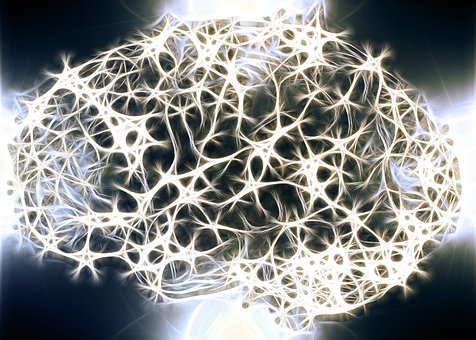Prevent Alzheimer's With Olive Oil, Turmeric and Sunlight
© HealthyMuslim. See Terms and Conditions

Two recent studies have found that naturally-occurring substances found in olive oil and turmeric are associated with preventing or reversing the damaging effects on the brain caused by Alzheimer's disease.
Extra Virgin olive oil and Alzheimer's
The first study found that oleocanthal, a naturally-occurring compound found in extra-virgin olive oil, alters the structure of proteins in the brain believed to contribute to the debilitating effects of Alzheimer's disease. This structural change slows down the proteins' ability to damage brain nerve cells.
The chemicals involved are believed to "directly disrupt" the nerve cells from working in the brain's of Alzheimer's pateints, eventually leading to memory loss, cell death, and whole disruption of brain function.
The lead author of the study said: "The findings may help identify effective preventative measures and lead to improved therapeutics in the fight against Alzheimer's disease."
Scientists who previously identified this harmful structure of brain chemicals, known as ADDLs in 1998, said of the findings: "If antibody treatment of Alzheimer's is enhanced by oleocanthal, the collective anti-toxic and immunological effects of this compound may lead to a successful treatment for an incurable disease.
Research paper details:
Pitt J, Roth W, Laco P, et al. Alzheimer's-associated A² oligomers show altered structure, immunoreactivity and synaptotoxicity with low doses of oleocanthal. Toxicology and Applied Pharmacology Vol 240:2, 15 October 2009, P 189-197.
Turmeric, Vitamin D3 and Alzheimer's
In the second study, scientists from UCLA found that a form of vitamin D, together with a chemical found in the spice turmeric called curcumin, helped to stimulate the immune system to clear the brain of amyloid beta, proteins which forms the plaques that characterize Alzheimer's disease.
The research findings reported that vitamin D3 - a form of vitamin D - both alone and together with natural or synthetic curcumin, boosted the immune system in protecting the brain against these plaques.
"We hope that vitamin D3 and curcumin, both naturally occurring nutrients, may offer new preventive and treatment possibilities for Alzheimer's disease," explained the study author.
This small study used blood samples from both Alzheimer's patients and healthy control subjects, and measured the effects of curcumin and vitamin D3 on amyloid beta.
The team discovered that curcuminoids enhanced the surface binding of amyloid beta to cells in the brain that help to 'clean-up' the immune system, and that vitamin D strongly stimulated the uptake and absorption of amyloid beta in these cells in a majority of patients.
Previous studies involving curcumin have also demonstrated its ability to treat Alzheimer's by its protective binding of amyloid beta. This more recent study suggests that the addition of vitamin D3 further increases this effect.
Vitamin D3 is an essential nutrient for bone and immune system health; its main source is sunshine, and it is synthesized through the skin. Curcumin is the active ingredient in the spice turmeric, a yellow-orange spice commonly used in curry dishes. It is a potent antioxidant chemical and research has found that it not only benefits dementia, but it also has cancer-fighting and anti-inflammatory properties.
Research paper details:
Lim GP, Chu T, Yang F, et al. The curry spice curcumin reduces oxidative damage and amyloid pathology in an Alzheimer transgenic mouse. J Neurosci. 2001 Nov 1;21(21):8370-7.
Link to this article: Show: HTML Link • Full Link • Short Link
Share or Bookmark this page: You will need to have an account with the selected service in order to post links or bookmark this page.





|
Related Articles:
- Olive Oil Is Effective Against A Form of Breast Cancer
- Vitamin D and Its Benefits for Depression
- Reduce Inflammation and Pain with Olive Oil
- Vitamin D - A Gene-Regulating Super Nutrient
- Higher Vitamin D Levels in Blood Associated With Lower Cancer Incidence
- Spices for Health
- Parkinson's Link to Vitamin D Deficiency
- Deodorant And Anti-Perspirant Dangers - Do You Know What You're Putting Under Your Armpits?
- Curcumin in Turmeric Is A Powerful Disease Inhibitor
You must be registered and logged in to comment.
Most Popular
Latest Articles
Popular Subjects
Health, fitness and longevity
Based upon the principles of health
in the Qur'an and Prophetic Traditions.
HealthyMuslim.Com
There are two bounties in which
most people lose out: good health
and free time. Al-Bukhari.























